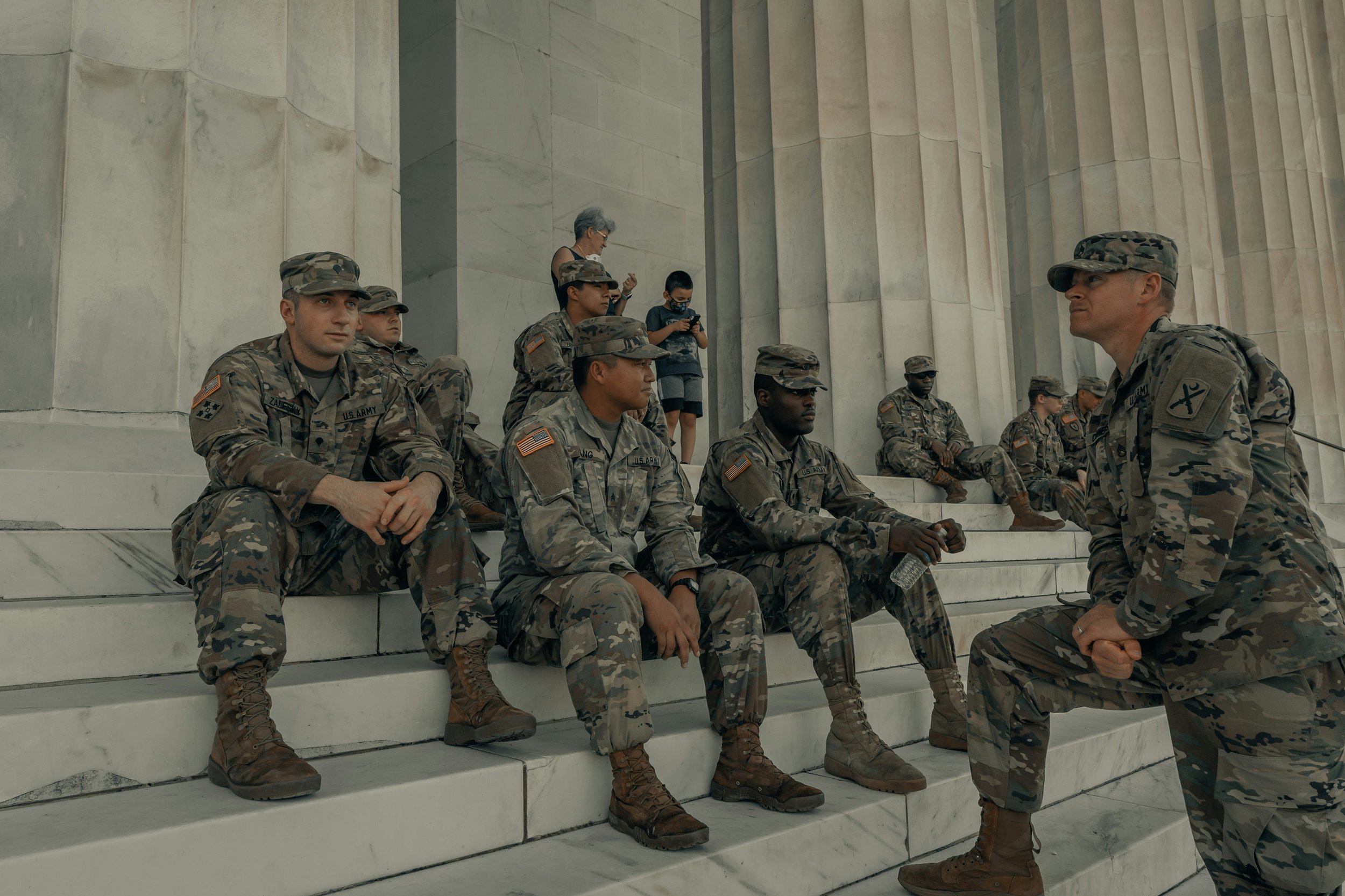National Security and the All-Volunteer Force
The US Army outside the Lincoln Memorial
Mission
Conduct a fact-based, holistic, unvarnished assessment of national defense manning; and provide well-reasoned, nonpartisan recommendations for a viable, sustainable manning approach that meets the national security needs of the nation. ACNSL strives to collegially collaborate, arrive at well-reasoned solutions, and effectively and consequentially communicate recommendations that promote a sound American national security strategy.
Strategic Challenges
The United States Defense Service manning crisis is detrimental to National Security. This is due to multiple interconnected factors including; a strong jobseeker market, low birth rates, immigration rates, prevalent physical and mental heath issues within the military aged population and other influences.
Within the All-Volunteer Force, continued sexual harassment and sexual assault erodes the public’s image of the military. And within the AVF these issues have a major detrimental effect on the force, damaging morale and unit cohesion.
The Committee strongly believes that lowering recruiting standards will not solve the manning crisis and indeed could exacerbate the problem, further weakening national security capabilities.
The current state of the VA, primarily regarding differences between the standard of care between Military Medicine and the VA, creates the perception of poor healthcare, both physical and mental, for veterans following their service among the broader public, and especially among potential future recruits. We believe that reforms are needed to the VA to address these issues.
While overall retention numbers are up across the AVF, continued manning gaps within specialist career fields show that improvements within the AVF should be made to preserve its population of specialists and NCOs.
The Committee believes that a Presidential Commission, and its resulting executive actions, can have a major impact on reducing the state of the crisis.
The development and implementation of AI tools can play a potential role in ending the manning crisis and should be investigated appropriately. Proper implementation of tools in this new field will ensure American domination in this new field against potential geopolitical adversaries.
ACNSL Publications: Committee on National Security and the All-Volunteer Force
Committee on National Security and the All-Volunteer Force External Links
Gallery
Committee Chair
MG Peter S. Cooke, President of ACNSL
Committee Members
Brig Gen Ricardo Aponte, US Air Force, Retired
RDML Jamie Barnett, US Navy, Retired
LTG Ronald Blanck, US Army, Retired
Ambassador Donald Booth, US Department of State, Retired
VADM Dirk Debbink, US Navy Reserve, Retired
RADM Joseph DiGuardo, US Navy, Retired
Lt Gen Walter Gaskin, US Marine Corps, Retired
Ambassador Scott Gration, US Department of State, Retired
VADM Kevin Green, US Navy, Retired
RADM Len Hering, US Navy, Retired
MG Sanford Holman, US Army, Retired
Lt Gen John D. Hopper, US Air Force, Retired
LTG Claudia Kennedy, US Army, Retired
MG Dennis Laich, US Army, Retired
Brig Gen Carlos Martinez, US Air Force, Retired
Brig Gen Joseph Medina, US Marine Corps, Retired
LTG Charles Otstott, US Army, Retired
MG Jeffrey Phillips, US Army, Retired
Ambassador Charles Ray, US Department of State, Retired
RADM Harold Robinson, US Navy, Retired
MG Margaret Wilmoth, US Army, Retired










